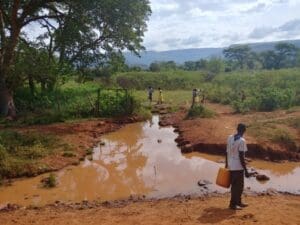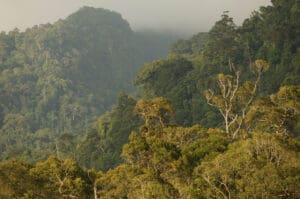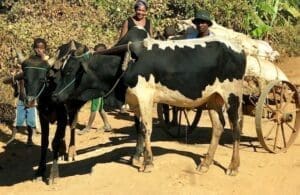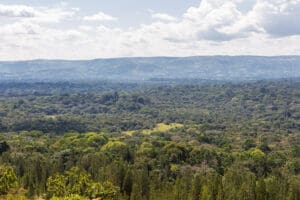Patrick Kipalu contributed to this post.
The Democratic Republic of the Congo (DRC) is home to the second largest tropical forest in the world, and a critical site in the global battle against climate change. As a result, the country has attracted substantial investment from conservation and climate initiatives, as well as from private mining and agriculture investors.
However, many of these projects fail to take into account the land rights of the Indigenous Peoples and local communities who have lived on and protected these lands for generations. All too often, land is at the heart of violent conflict and displacement.
Since 2012, RRI has supported a vibrant coalition in the DRC, helping to influence the country’s evolving land rights laws and leading to major policy reform at the national level. As a result of this longstanding advocacy, and despite many political and financial hurdles, the current government is now close to finalizing a land policy document by the end of 2021 and a new land law by the end of 2022 – heralding a new era of progressive community land rights in the Republic.
The beginnings
RRI’s coalition members started actively advocating for community land rights as the government launched the land reform process in the DRC in 2012. In 2013 the government created a National Land Reform Commission (CONAREF) to manage the reform process based on principles of participation, decentralization, and respect for environmental and human rights, as well as rights of women and minorities. The reform was guided by three main objectives:
-
- Limit, possibly eliminate land conflicts and violence originating from land issues.
- Ensure legal security of land rights for communities with a particular attention to vulnerable groups, such as women and minorities, whether those rights come from formal (modern) law or from customs (traditions).
- Encourage productive investment in land with respect to rights and environmental sustainability.
In addition, the Commission agreed upon five key components, incorporating short, medium, and long-term needs to improve land governance in the country:
-
- Finalize the national land policy document.
- Recognize and securing individual and collective land rights.
- Improve land governance and the efficacity of the land administration.
- Adopt and harmonizing legislations and sectoral regulations.
- Take into account cross-cutting issues and emerging challenges related to the reform.
Through a set of activities jointly identified by reform advocates and government representatives, each of the above components has contributed to the finalization of the land policy document, which describes the national strategy of land management in the DRC.
How did RRI help?
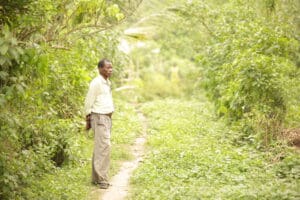
Since 2012, RRI’s DRC collaborators have undertaken a host of concerted measures to help push this reform process. These measures include:
-
- Helping coalition members participate in the development of the land policy document from the very beginning.
- Strengthening their knowledge base by conducting national level research and analyses, and capacity building to influence the elaboration of texts.
- Facilitating a series of provincial dialogues on land tenure (especially on women’s access to land).
- Facilitating national consultations in 13 out of 26 provinces on the draft land policy document, engaging directly with the Ministry of Land Affairs through the National Commission of Land Reform (CONAREF) for discussions, and submission of inputs (from analysis, communities, and coalition members).
- And most recently, organizing a national level validation meeting in November 2021 with our DRC coalition members to integrate all feedback from provincial stakeholders and national experts into the final land policy document. This meeting brought together ministers, parliamentarians, other government representatives, judges, representatives of international NGOs and development agencies, private sector actors, students and professors, and community members from all around the country – all at the same table to deliberate a law that would impact their country’s future for generations.
Most notably, RRI is the only international NGO asked by the government to present its recommendations to improve the draft land policy document. All of RRI’s recommendations to strengthen and clarify collective tenure were adopted and included in the final version of the land policy document. In addition, the Ministry of Land Affairs official asked specifically for RRI’s support in piloting a “Community Land Registry” in some provinces to share information and explore further opportunities to scale-up reform nationally.
RRI’s engagement in the DRC doesn’t end here. Our coalition plans to continue working with the Ministry of Land Affairs, CONAREF and other collaborators to raise awareness on the new land policy document as well as help create the pilot community land registry. It will also continue discussions with the government on piloting community tenure and women’s land concessions in some provinces, and its work with the Tenure Facility to implement the reforms now on the book.



